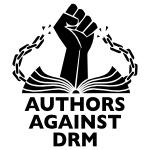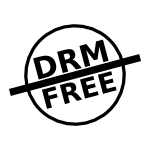Useful Self Publishing Links.
BISAC
BISAC Subject Headings List, Fiction Book Industry Study Group Category Standard
BARCODE
Free Online Barcode Generator
Pubslush A Crowdfunding platform specifically for books (for general purpose crowdfunding see: IndieGoGo and Kickstarter)
ISBN
Canada: The Canadian ISBN Service System (CISS)
International: International ISBN Agency
Paper
Printing Industry Exchange LLC: Paper Weight & Size — When is 80# not 80#?
MANUFACTURING
EBOOKS
PRINT ON DEMAND
CreateSpace
LuLu
Indie & Self Publishing Blogs
Barry Eisler: the heart of the matter
attention getter: One-Percent Authors Want To End Destructive Conflict, Bring Order to the Galaxy
Amazon v Hachette
Eamo the Geek: Hachette Vs Amazon: A Reader Makes a Stand
The Cock-eyed Pessimist
Martin Shepard, co-publisher publisher of The Permanent Press
got my attention
dbw (digital book world)
attention getter: Amazon Encourages Affected Shoppers to Buy Hachette Books From Competitors, Anticipating Long Negotiation
Hugh Howey
attention getter: Authors United? I Wish it Were So.
How Traditional Publishing Works
First Sale Doctrine
Passive Boice: Lagardère’s Investor Presentation
“Back in August, a class action lawsuit was filed against five major book publishers and Apple (NSDQ: AAPL), accusing them of colluding to jack up the price of e-books in an effort to wrest back pricing power from Amazon (NSDQ: AMZN). The suit claims millions of customers overpaid for e-books because of the alleged price fixing plan.”
gigaom: Price-Fixing Case Against Apple, Major Book Publishers Mushrooms
Currently, the “big six” book publishers–Hachette, HarperCollins, Simon & Schuster (NYSE: CBS), Macmillan, Penguin and Random House–are the only U.S. publishers using the agency pricing model. Other publishers are still using the wholesale model, under which they set an e-book’s list price but the etailer can charge whatever it wants (and can sell an e-book at a loss). Hachette, HarperCollins, Simon & Schuster, Macmillan and Penguin all adopted agency pricing in January 2010 as part of negotiations with Apple prior to the launch of the iPad.
colluded in Jan 2010 – Amazon was forced to accept it
Publishers argue that most of the costs of publishing a book are fixed (acquisition, cover design, editing, marketing, etc), and don’t go away in a digital world.
Nathan Bransford – agency and wholesale pricing
Why Some E-Books Cost More Than the Hardcover
Why the DOJ’s Potential Lawsuit Over the Agency Model is a Really Big Deal
Apple agrees to pay $450 million to settle ebook price fixing lawsuit




